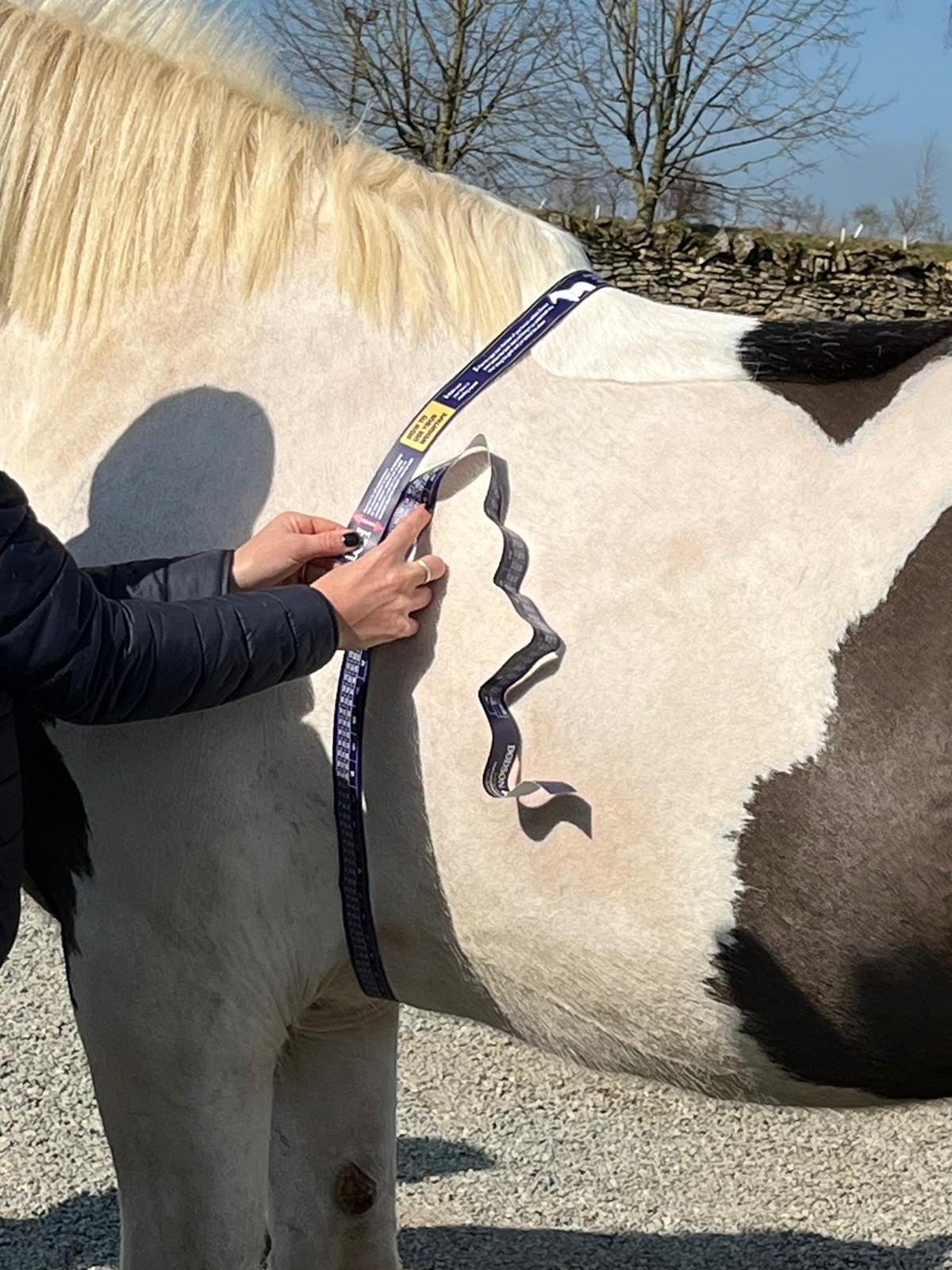One of the most common questions we get asked is ‘how do I know if my horse is at a healthy weight?’ Without having regular access to a weighbridge, this can prove to be really difficult. Weigh tapes help to give a quick estimate of your horse or ponies weight, and they are a great tool to keep track of any fluctuations in your horse’s weight. As well as allowing you to monitor the effect of both exercise and nutrition on bodyweight changes, weigh tapes are also incredibly useful to monitor weight loss due to dehydration when competing or travelling your horse. Download our free weight tracker for easy monitoring.
Managing Your Horse’s Weight
Once you have established whether your horse is under or overweight, or is happily maintaining at a healthy level, here are some top tips on equine weight management:
1. Check your feed
Once you know your horse’s weight, you will be able to calculate the feed rations that your horse requires, rather than making estimates based on a 500kg horse. We would always advise speaking to an expert to ensure your horse is receiving the correct balance of nutrients from their feed. It is incredibly easy to feed horses more calories than they actually require.
2. Make very gradual changes
Remember that horse’s stomachs are incredibly small and have a diverse microbiome, so any changes you are making to your horse’s diet need to be made slowly. They are also trickle feeders, so starvation diets are definitely not a healthy option to encourage weight loss. Little and often is best, increasing forage and decreasing hard feed where possible. If you have a good doer that doesn’t know when to stop, introducing a haynet is a great idea. Remember a horse needs to consume on average 1.5% - 2% of their bodyweight in forage per day.
3. Limit grass intake
Most horses in light work can get the majority of their nutritional requirements from forage and grazing each day, but if you find your horse is gaining weight with minimal forage then you may need to limit their grass intake. Strip grazing is a great way of doing this, or putting a grazing muzzle on your horse or pony if they are really greedy!
4. Don’t feed for more energy
Often good doers can feel a little on the sluggish side when being exercised, but this is often to do with the excess weight they are carrying. Feeding oats or high energy food for that extra ‘boost’ isn’t going to help their weight management. Remember energy = calories, so the more energy you give them, the more of a calorie surplus they will be in, resulting in weight gain. Much like in human nutrition, to lose body fat, horses need to be in a calorie deficit. This means that they need to be burning more than they are consuming. Ensuring they have a suitable exercise regime alongside reducing their calorie intake with a suitable concentrate ration, will enable them to sustain a healthy weight loss.
5. Remember every horse is different
If your horse is stabled on a livery yard, it can be incredibly difficult to not get drawn into other people’s opinions and follow feeding routines that other owners use. However, just like humans, every horse is individual and has unique energy requirements. Just because everyone else is rugging up their horse, it doesn’t mean that you have to - particularly if your horse needs to shed a few pounds!
If you would like help on equine weight management, whether that be weight gain or weight loss, our team of nutritional experts are always on hand to help. Call them today on 01270 782 223. There are many different factors that affect a horse’s weight, so getting the right advice is always key.



